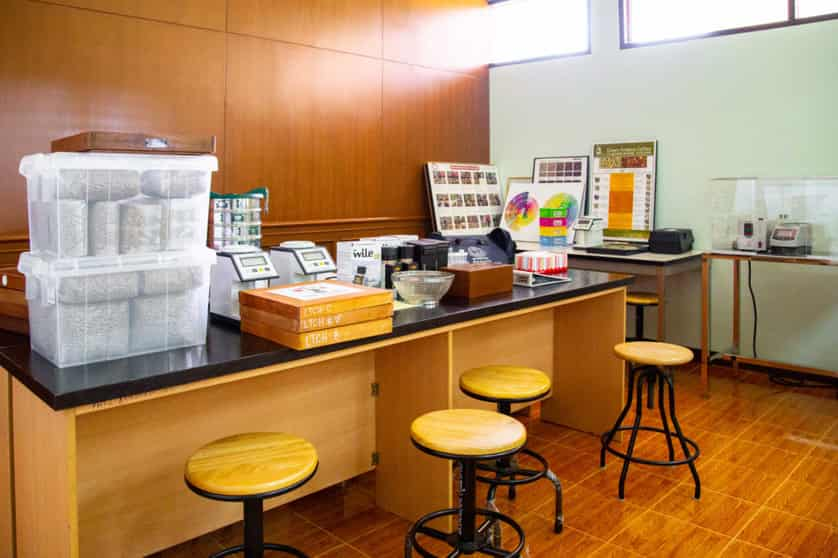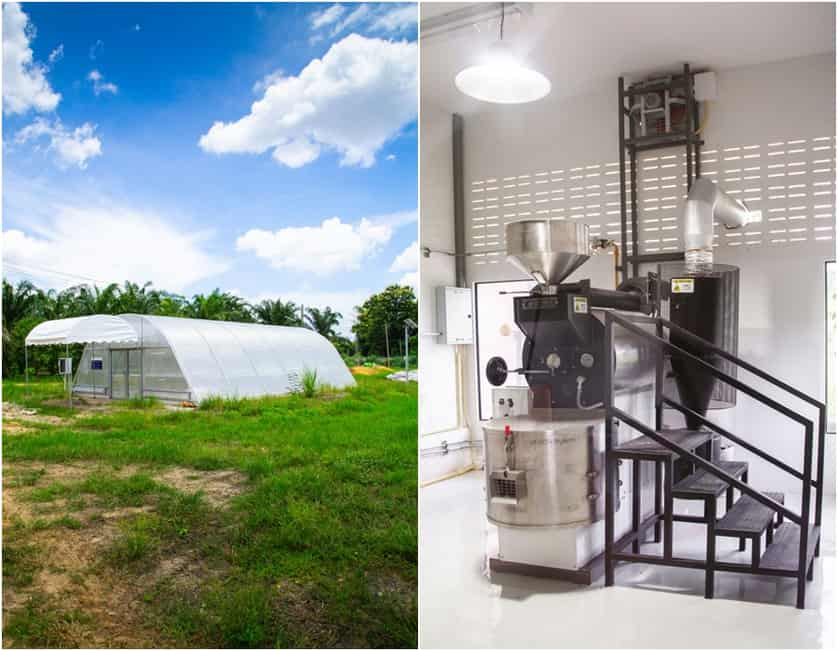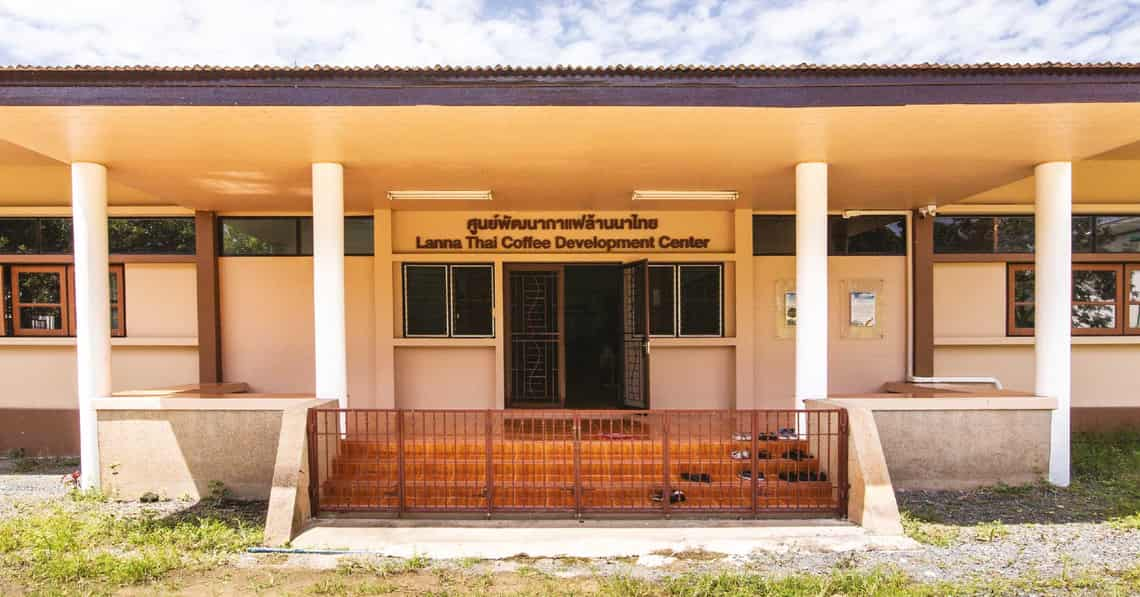Coffee originated in Ethiopia and moved East through the Arab states, until it is now grown across the world from Europe to here in Northern Thailand, where coffee was first introduced in 1973.
Our Northern mountains began to see coffee growing as an experiment to introduce a new crop to substitute for opium cultivation, which was rife in the last century. His Majesty King Rama IX, who had recently set up the Royal Project, was the first to introduce Arabica coffee to the area, and while it has taken many decades for the Northern coffee industry to mature and flourish, today Northern Thailand is coming into its own as a coffee destination, having also developed a healthy coffee culture in tandem with its production.

At the beginning of this year, the Faculty of Agriculture, Chiang Mai University, which has been conducting research and development into coffee growing and processing for the past thirty years, set up the Lanna Thai Coffee Hub, aimed at elevating the standards of Arabica in the region, and positioning its production to meet market requirements as well as to better the standards of living for highland farmers.
“Following the launch of the Lanna Thai Coffee Hub,” said Assist. Prof. Dr. Yaowaluk Chanbang, “we have identified the importance of providing valuable information and knowledge to everyone in the coffee industry, this hub’s role being to offer advice and expertise for every person interested in coffee so that they can take our decades’ worth of knowledge and develop their businesses further.”

The Lanna Thai Coffee Hub has conducted research from the seed stage all throughout the coffee industry through cultivation, processing, marketing to business operations and aims to be the provider of resources to support the growth of the industry.
“It is important that Thai farmers understand that standards which buyers and consumers expect from their products,” continued Assist. Prof. Dr. Yaowaluk.
“Should a farmer select a healthy seeding, then the coffee plant will grow strong, bug and disease resistant and produce quality beans,” added Patchanee Suwanwisalkit, a researcher at the faculty. She went on to explain that the Lanna Thai Coffee Development Centre, of which the Lanna Thai Coffee Hub is a part of, has many roles from being a training centre for all aspects of the coffee industry, having a laboratory to conduct research into soil, fertiliser and any other element which may affect the coffee plant, offers farmers a coffee clinic whereby they can come and consult or receive advice, as well as producing its very own coffee beans which has been sold for decades.
“If farmers live too far away to conveniently come to our centre, we also provide mobile workshops and clinics so that we can help as many who need our expertise as possible,” continued Assist. Prof. Dr. Yaowaluk Chanbang.
Today coffee is a part of the faculty’s syllabus, and as the industry matures into a viable and potentially great economic crop, the services of and knowledge provided by the Lanna Thai Coffee Development Centre, will only be more and more important. Interested parties can contact the centre at www.lannathaicoffeehub.com.
